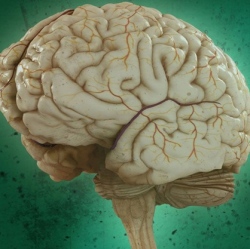
Research sheds light on how psilocybin could help people overcome depressive symptoms. The drug appears to promote a change from disconnection to connection and a change from avoidance to acceptance. Psilocybin is the primary mind-altering substance in psychedelic “magic” mushrooms.
The drug can profoundly alter the way a person experiences the world by producing changes in mood, sensory perception, time perception, and sense of self.
Scientists have recently starting re-examining at whether psilocybin can be used in the treatment of mental illnesses, and the initial results are promising.
“Although many of us think of psychedelics as dangerous drugs, it’s time for a rethink,” explained the study’s corresponding author, Rosalind Watts of Imperial College London. “When used carefully in clinical research settings, psychedelics have been reported to have a profoundly beneficial effect on many people’s lives. They are non-toxic, non- addictive, have very few side effects, and could potentially offer relief for people suffering from a range of psychological difficulties.”
In the current qualitative study, which was published in the Journal of Humanistic Psychology, researchers interviewed patients from a clinical trial of psilocybin for treatment-resistant depression. (The initial results of the clinical trial were published in The Lancet.)
“Working in a community mental health team, I realised that conventional mental health treatments (antidepressants, CBT) were not working for many people. I also watched my best friend struggle with depression for many years,” Watts told PsyPost.
“When she told me she was going to do an ayahuasca ceremony in Peru, I knew nothing about psychedelic therapy research, and thought it was a terrible idea. But she came back home with a sparkle in her eye that I hadn’t seen for years, and told me that the depression had finally lifted. So I thought to myself ‘this looks promising, let’s find out more.’”
A number of themes emerged after the researchers questioned 6 women and 13 men who had undergone psychedelic therapy 6 months prior.
First, the participants described depression as a state of disconnection, which was reversed with psilocybin. Secondly, the psychedelic treatment helped them confront, process, and accept painful memories and thoughts. Thirdly, they described previous depression treatments as reinforcing the disconnection and avoidance they felt — while psilocybin worked in the opposite way.
“The reset switch had been pressed so everything could run properly, thoughts could run more freely, all these networks could work again. It unlocked certain parts which were restricted before,” one participant explained.
“I got a wider perspective, I stepped back. It helped me appreciate that the world is a big place that there’s a lot more going on than just the minor things that were going on in my head,” another participant told the researchers.
A third remarked: “My previous treatments, talking therapy and meds, were next to useless, utterly useless. My experience of psilocybin has been very positive. I believe there is an unknown physiological and neurochemical change in me, I am absolutely convinced of that.”
Or as another participante summed it up: “Now there’s a greater sense of ‘we’re all in the same boat’; less unease.”
There were no serious adverse events reported during the psilocybin sessions. But a few participants had troubling psychological experiences which resolved themselves before the session was over. A few participants also wished they had received more psychotherapy following the drug session.
“The psychedelic experience is not to be taken lightly,” Watts explained. “Participants in our study found psilocybin therapy to be preferable to other treatments they had tried, but that does not mean it was easy.
Many of them had experiences of deep grief, sadness and fear, and relied upon the support of their ‘guides’ to enable them to fully accept and process these emotions. If any psychologists are interested in volunteering as a ‘guide’ they can get in touch at ros.watts@yahoo.co.uk.”
“It’s very early days: the sample sizes are small, and we need to determine the role of placebo effects. Randomized control trials in the United States (John Hopkins, NYU) have started to address the question about placebo effects with similar promising findings. Upcoming randomized control trials in Europe will continue to investigate.”
The study, “Patients’ Accounts of Increased “Connectedness” and “Acceptance” After Psilocybin for Treatment-Resistant Depression“, was also co-authored by Camilla Day, Jacob Krzanowski, David Nutt and Robin Carhart-Harris.
